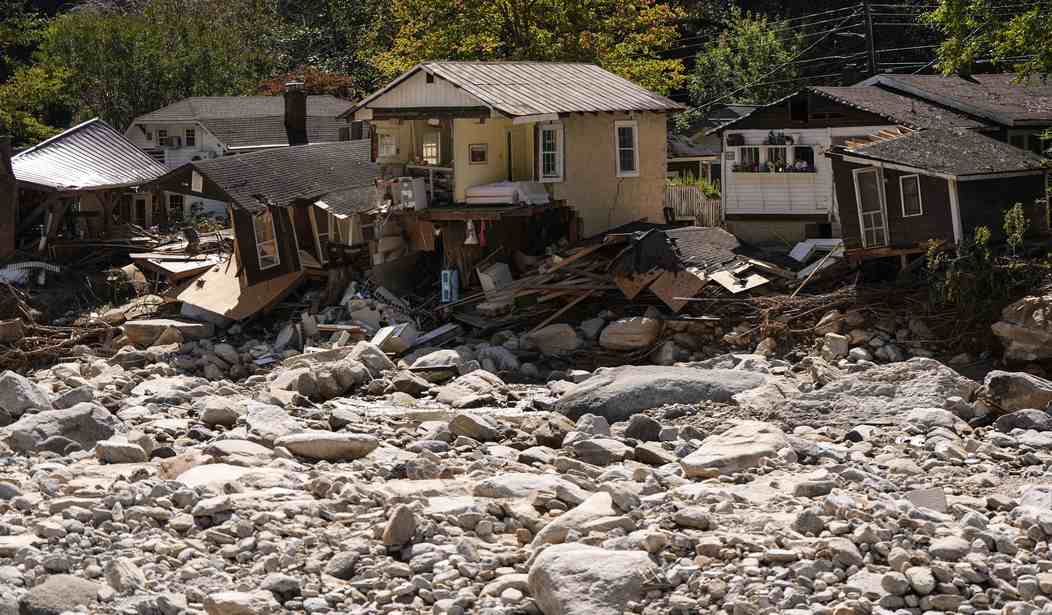The devastation that Hurricane Helene wrought was the worst since the 2005 Hurricane Katrina. And while no one can predict the damage that Hurricane Milton, now scheduled to hit Florida's west coast by early evening Wednesday, will cause, the powerful storm will hit densely populated communities like Sarasota and Fort Meyers.
First and foremost, we hope that the people in Milton's path in Florida and those recovering from Helena's destruction in Georgia, North Carolina, and Appalachia will remain safe.
But we are less than a month from Election Day and the beginning of what promises to be a long, drawn-out process of counting the votes. How will the two storms impact the election both psychologically and materially?
"Early indications are that key election equipment such as ballots and voting machines were largely unaffected by the storm, avoiding a major last-minute logistical nightmare," reports Politico. "But the mounting to-do list is daunting."
"Roughly one-fifth of North Carolina voters live in areas battered by Helene, according to state voter registration statistics," Politico reports. "Fourteen county election offices in the state were closed for the near-term as of Tuesday, according to Karen Brinson Bell, the executive director of the North Carolina State Board of Elections." Many of the hardest-hit areas will not have running water or electricity by Election Day.
Many residents will want to vote by absentee ballot. But if they can't return to their homes, how will they receive the ballot by the deadline? Will the ballots arrive at their temporary addresses? How can residents be sure where they'll be in a few weeks when it's time to vote?
Republicans especially have to face the fallout from the hurricanes. The Washington Post's Phillip Bump calculated that "areas with disaster declarations favored Trump by 16 points in 2020." The hard-hit areas were particularly favorable for Trump in North Carolina.
“Republican areas got hit very hard," Trump said at a Townhall on Monday night.
“I believe they’re going to go out and vote if they have to crawl to a voting booth,” Trump said. He added that “we’re trying to make it convenient for them to [vote], but they just lost their house.”
There's very little precedent for hurricane-impacted elections. Katrina is the only modern example.
The most pronounced modern example is, of course, Katrina. That hurricane hit New Orleans in August 2005, and more than half of the city’s residents had not returned by its April 2006 mayoral primary.
Turnout in that primary dropped by more than 10 percent from four years prior, and studies show it dropped by much more in the hardest-hit areas, which were disproportionately poor and Black. One study showed turnout in Black neighborhoods dropped from 63 percent of the total vote in 2002 to 57 percent in 2006; another showed Black voters themselves dropped from 62 percent of the electorate to 52 percent. Turnout in the Lower Ninth Ward, with its overwhelmingly Black population, fell by nearly 40 percent.
I think a good rule of thumb is that states that have historically gone Republican in recent history, including Florida, Georgia, and North Carolina, will end up going red on election day. Even if the hardest-hit areas voted for Trump in 2020, the rest of the state isn't much better off. Also, Trump voters have proven to be historically more committed to voting. Trump wasn't far off when he claimed his voters would "crawl to a voting booth" to vote for him.
Besides, an election is a good way to bring back a sense of normalcy to life after a devastating storm. And the fact that the election is a month away helps mitigate the most serious effects on turnout.
In the end, those who are going to vote will find a way, storm or no storm.










Join the conversation as a VIP Member